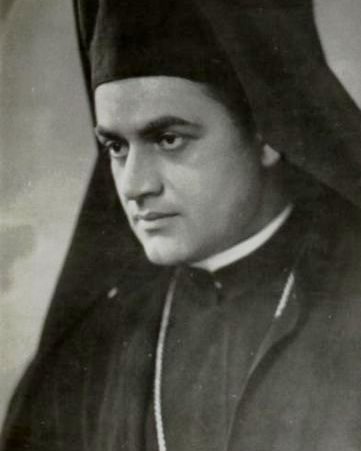

|
The Kartvelologist The Kartvelologist” is a bilingual (Georgian and English) peer-reviewed, academic journal, covering all spheres of Kartvelological scholarship. Along with introducing scholarly novelties in Georgian Studies, it aims at popularization of essays of Georgian researchers on the international level and diffusion of foreign Kartvelological scholarship in Georgian scholarly circles. “The Kartvelologist” issues both in printed and electronic form. In 1993-2009 it came out only in printed form (#1-15). The publisher is the “Centre for Kartvelian Studies” (TSU), financially supported by the “Fund of the Kartvelological School”. In 2011-2013 the journal is financed by Shota Rustaveli National Science Foundation. |
Questions on the Georgian translation of the Acts of the Apostles
Without claiming to answer the question of knowing from which language, Greek or Armenian, was translated the text of the Acts of the Apostles into Georgian, I would just draw attention to few linguistic events noted during a comparative reading of the Acts in its three variants – Greek, Georgian and Armenian. Three points will be discussed here; the first two involve the Georgian and Armenian versions of the Acts, the third one involve the Georgian and Greek texts. keywords: Category: SCHOLARLY STUDIES Authors: Agnès Ouzounian Which langauge has the Georgian Acts of the Apostles been translated from?
The provenance of the Georgian biblical text today too remains one of the cardinal issues of Georgian studies. Many Georgian and foreign researchers have dealt with the question of from which language the oldest Georgian recensions of the biblical books were translated. The research was conducted not in a complex way but involved separate books or recensions. In European Oriental Studies, and partly in Georgian Philological circles the idea became gradually popular which, on the basis of an analysis of concrete sources carried out by N. Marr, I. Molitor, R. Blake and others considers the Armenian trace to be a revision of the subsequent period. This idea is based on the view held in Medieval Georgia, facts of the earliest theological – philosophical terminology, the most recent philological analusis of the khanmeti fragments of biblical texts, the evidence of the historical process of Armenian-Georgian ecclesiastical and cultural relation. Bernard Outtier’s present essay deals with this issue. In particular, it gives a critique of the view on the Armenian provenance of the oldest Georgian recension of the Acts of the Apostles and concludes: “the idea of Prof. Garitte widely agreed upon in Western Europe that the Georgian Acts of the Apostles was translated from the Armenian, does not seen true”.
keywords: Acts of the Apostles, G. Garitte Category: SCHOLARLY STUDIES Authors: BERNARD OUTTIER Georgian Scholar Grigol Peradze – Student of the University of Berlin
keywords:Grigol Peradze Category: CHRONICLE OF EVENTS Authors: STEFFI CHOTIWARY-JÜNGER KARTVELOLOGICAL STUDIES IN POLAND (1920-2011)
The review of the development of Polish kartvelology, that I am going to present you in a moment, will not be a full exploitation of the subject. It is simply impossible. In fact, the bibliography of works relating to Georgia is still incomplete. In order to obtain a more comprehensive picture we still need a long-lasting study. Nevertheless, I can present the basic lines of development and achievements of Polish kartvelology, focusing on key issues.
keywords: Category: CHRONICLE OF EVENTS Authors: Fr. Henryk Paprocki
The Path of "The Man in a Panther-Skin" to England and English Historical Sources
This paper examines the information emerging in the English historical literature and primary sources concerning the origin of Shah Abbas’ Georgian Christian wives, which has not yet been discussed in Georgian historical writing. Specifically, English diplomat and traveller Sir Anthony Sherley, at the end of the 16th century, and Sir Thomas Herbert, an English attaché to Iran in the early 17th century, note in their books published in the 17th century that Abbas married the daughters of King Simon of Kartli and King Alexander of Kakheti (around the sixteenth and seventeenth centuries). English historical writings and sources indicate that the English diplomat Sir Anthony Sherley and his colleagues were assisted by the Christian wives of the Shah at the end of the 16th century. This statement reinforces the view that the story of the MPS known to a group of the early 17th-century English playwrights, and Shakespeare himself, became known through the cooperation of prominent ethnic Georgians, promoted at the Court of Abbas, with Sir Anthony Sherley.
keywords:The Man in a Panther-Skin, Thomas Herbert, English dramaturgy, Shah Abbas Category: SCHOLARLY STUDIES Authors: ELGUJA KHINTIBIDZE |
Categories Journal Archive |



